
OHS DAY 2025 – The Role of AI and Digitalization at Work
Digitalization at work is a strategic phase towards improving efficiency, firming up compliance, and enhancing employee well-being. Accomplishing it in a precise approach necessitates extra than implementing a new software program. Occupational health and safety are multidisciplinary field concerned with safeguarding and promoting the well-being of individuals in the workplace with a principal objective of preventing injuries, illnesses, and fatalities among workforces and to generate and sustain a work environment fostering the employees’ physical, mental, and social health. The AI incorporation into the field of occupational health and safety is in initial phases, it has numerous applications in workplace. It comprehends an organized and efficient process in identification and categorization, assessing with mitigating risks and hazards that possibly arise from work-related activities. Some of these applications deliver benefits for the health and safety of workers, such as continuous monitoring of workers’ health and safety and the workplace environment through wearable devices and sensors while, some have negative impacts in the workplace, such as ethical worries and data privacy concerns. Innovative use of AI in the workplace provide substantial challenges for OHS along with the need to gain a deeper grip of AI approaches with the possible consequences on work and employees when AI-enabled apps are implemented in the workplace.
|

Petroleum Product Deregulation Policy
Petroleum Division has scheduled an important meeting “Deregulation/Roadmap on Future Strategy of Downstream Oil Sector” to discuss the forthcoming policy for deregulating the country’s downstream oil sector. Attendees of the meeting are Chairman of OGRA and the Managing Directors of Pakistan State Oil, Pak-Arab Refinery Limited, and Pakistan Refinery Limited. The government is moving fast with proposal to frame the deregulation of petroleum product prices policy. Swift change to full deregulation possibly will create chaos within the industry and to avoid any disruption in implementation of the deregulation policy will be in a phased manner — progressively over a period of six months to a year. Post – deregulation petroleum prices are expected to rise, predominantly in countryside areas where logistical expenses are higher in comparison to urban areas. Deregulation process by the government is an approach to wider efforts to reform and modernize Pakistan’s energy sector, concentrating on encouraging competition and investment with enhanced efficiency in the downstream oil market.
|
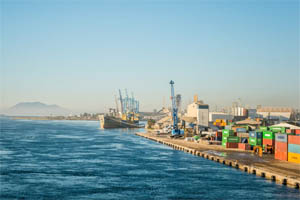
Pakistan and East African Community – New Sea Trade Corridors
Pakistan is setting to strengthen trade ties with the East African Community (EAC) with new sea trade corridors. A direct shipping line connecting Karachi Port to Djibouti, a gateway to East Africa and the complete development of Gwadar Port, altering it into a longstanding export hub precisely designed to cater the African market is the proposal involved in the establishment. New maritime trade corridors will serve as a catalyst for enhancing bilateral trade relations between Pakistan and the EAC member states, which are experiencing swift economic growth, present an extensive trade prospect, predominantly in manufacturing, textiles, agriculture, and technology sectors. Industrialists, exporters and investors from Pakistan with a direct and efficient route to tap into the profitable East African market. The strategic initiative will bolster export potential and contribute to Pakistan’s economic growth by opening new avenues for trade and investment. Inter-ministerial consortium would be formed of relevant ministries including other stakeholders to ensure the successful implementation of the plan.
|
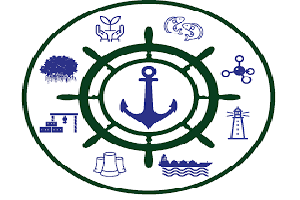
Pakistan’s Maritime Complaint Cell
Maritime Affairs has launched a dedicated complaint cell reforms to promote transparency with improved service in Pakistan’s maritime sector. The complaint cell platform with strengthening communication between government institutions and all stakeholders, including citizens, seafarers, port users, and investors. The initiative objects the commitment to fortify transparency, accountability, and stakeholder engagement in maritime governance. The complaint cell will allow individuals to submit grievances, highlight operative issues, and offer suggestions related to maritime activities, port operations and management, shipping policies and procedures, and other areas falls under the Maritime’s jurisdiction. An enthusiastic team has been tasked with ensuring prompt responses and effective follow-up. The collected feedback will play a pivotal role in refining policies, improving services, and ensuring the swift resolution of legitimate concerns. The complaint cell will be reachable online through the ministry’s official website portal and will offer communication channels via email and phone.
|
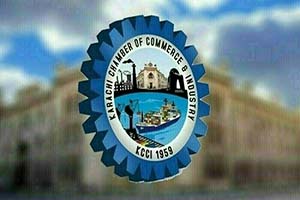
Customs – KCCI, Alliance to Support Exporters
To fortify Pakistan’s export sector, the Export customs department’s commitment to align thoroughly with the Karachi Chamber of Commerce and Industry (KCCI) to consolidate and unify trade operations. Longstanding cooperative connection between customs and the chamber, stressed the obligation of addressing exporters’ challenges. Exports are the lifeline of economy, and worked relentlessly for decades to enable hassle-free procedures for exporters, both in Karachi and upcountry. Unnecessary hurdles must be eradicated in a recent initiative, including the establishment of a 24-hour help desk at the customs headquarters for immediate exporter support with readily available contact details and a dedicated WhatsApp group to resolve issues in real-time, committed to addressing concerns promptly, the need for an export-led strategy to ensure sustainable economic strength, observing that remittances alone were not enough. Individuals fetching in misconduct must be identified and held accountable, persistent operational challenges such as high per-day charges, delays in examination procedures, and high logistics costs, particularly affecting perishable goods with the improved and efficient coordination between customs and cargo handlers to ensure swift clearance and protect product quality.
|
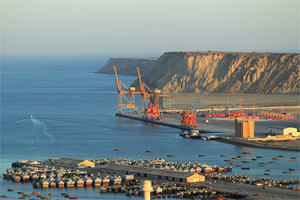
Export of Potassium Sulphate from Gwadar Port
Potassium sulphate is an indispensable fertilizer, with annual consumption totaling around 50,000 tons and the production capacity in the country stands at 65,000 tons per year in Pakistan. The Statutory Regulatory Order has been issued by Ministry of Commerce to aid the export of Potassium Sulphate from Gwadar Port. The SRO 705(1) 2025, which amends the Export Policy Order 2022, issued by the federal government under the powers granted by the Imports and Exports (Control) Act of 1950 to enable exports from the region. The amendment enables the export of Potassium Sulphate (HS Code: 3104.3000) specifically from Gwadar Port, with a focus on manufacturers situated within the Gwadar Free Zone. According to the new regulation, two companies, Agven Private Limited and Hangeng Trade Company Private Limited, are allowed to export the fertilizer, with a system in place to monitor the quantities in real-time through the customs WeBOC system.
|

AI Use in Pakistan’s Financial Sector
In the Financial Stability Review 2024 presented by the central bank, reflected the increasing adaptation and implementation of AI technologies across the global banking and finance industry. Considering that Pakistan’s financial institutions are also embracing these innovations, The State Bank of Pakistan (SBP) is concluding guidelines aimed at ensuring the accountable use of artificial intelligence (AI) in the financial and monetary services sector. Robotics, process automation for operational tasks, virtual assistants for customer service, and machine learning techniques for fraud detection and risk management are among the most frequently adopted AI technologies by local banks. These guidelines are designed to foster trust, transparency, and accountability in AI-driven financial services, while safeguarding consumer rights and interests. The SBP emphasized the need for banks to set clear risk appetites and tolerance levels for AI’s carbon footprint, ensuring a balance between operational efficiency and environmental responsibility. It also emphasized the systemic risks AI poses to financial institutions, such as operational failures, cyber-attacks, and supply chain disruptions.
|
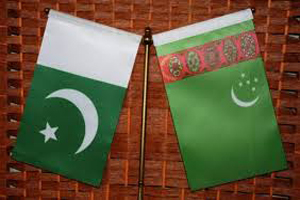
Pakistan – Turkmen Bilateral Trade Ties
In the first Economic Cooperation Organization Forum on Sustainable Development, Pakistan is embracing the sturdy pledge under the URAAN Pakistan initiative to encourage regional connectivity, economic integration and incorporation with sustainable development. Pakistan and Turkmenistan the deep potential for enhanced economic cooperation and collaboration. Pakistan has invited Turkmen energy companies to launch operations in Pakistan to contribute in regional energy security and support Pakistan’s green energy transition that is indispensable to deal with climate challenges and safeguarding sustainable, accessible energy. The potential for strong industrial cooperation between Turkmenistan’s cotton production and Pakistan’s textile industry, aligning with Pakistan’s goal to build robust value chains. Pakistan being rich agricultural and natural resource country, significant opportunities are being identified for collaboration in meat, fish, fruits, and other agriculture-based products.
|
|
© 2025 Alpine Marine Services Private Limited
all rights reserved
|
|
|